Actor-Producer Alysia Reiner Is Leading a Deeper Conversation Among Women
March 29, 2019 | Filed in: Women of the Week
Alysia Reiner has a knack for telling multidimensional stories about women. In addition to her role as Natalie “Fig” Figueroa, a tough assistant warden, on “Orange Is the New Black,” she produced and starred in Equity (2016) and Egg (2019), both of which explore issues for modern women around career and motherhood. We recently chatted with her about resisting societal expectations, championing women, and the significance of straight seams. And if you live in New York, catch Alysia at our first-ever live storytelling series on April 4!
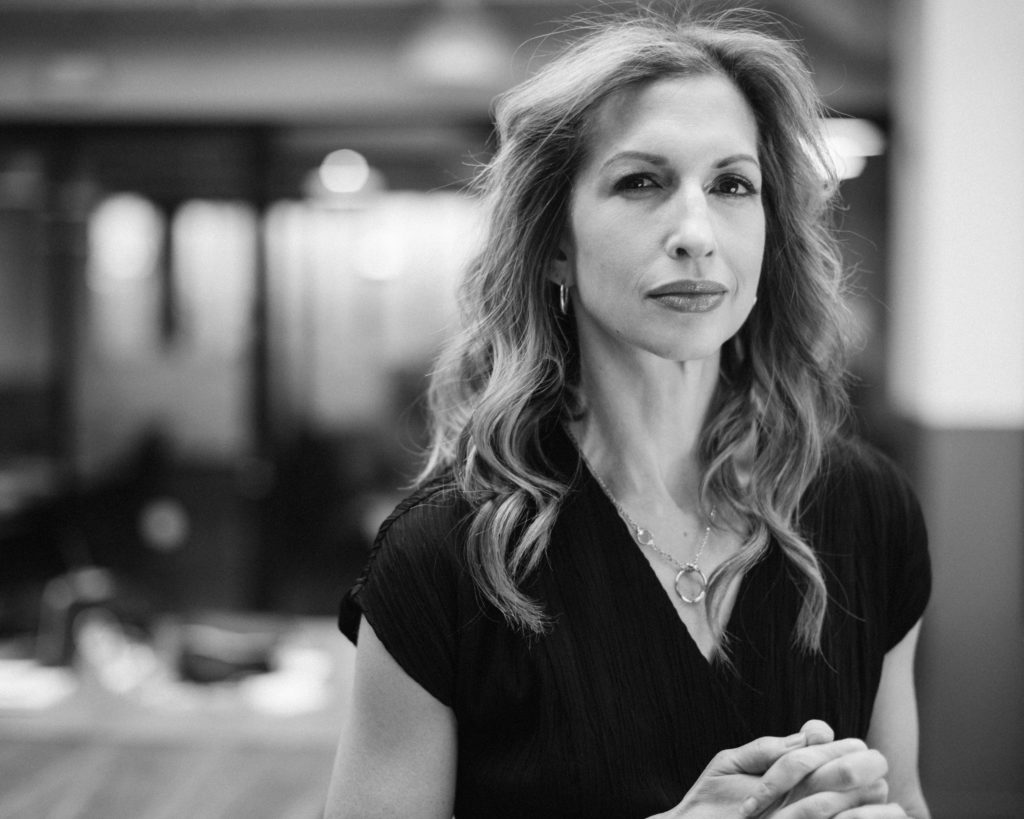
Alysia wears the Devlin dress, the Claressa earrings, and the Tenley necklace.
I ABSOLUTELY CONSIDER MYSELF A FEMINIST, but it took me a while to own that term and define it for myself. When I was first introduced to the word, it had a militant quality to it, which was tricky. But now, I think of feminism as the freedom to be whoever I want to be as a woman, and to fight for every woman’s right to make choices about all areas of her life and body. I am a champion of having a fair and equitable world for all women.
I LOVED HOW CONTROVERSIAL THE SCRIPT for Egg was. It addressed issues that I’d thought about but never talked about, such as how women’s roles are structured as workers, partners, friends, daughters, and mothers. There’s a scene in which my character says, “If government and businesses are gonna devalue women’s work and make motherhood economically unfeasible, why not outsource it?” I remember reading that and my skin crawled because it’s true. We, as a society, don’t pay women as much as men, and we devalue women who stay at home. It’s a lose-lose situation. I found that both powerful and upsetting.
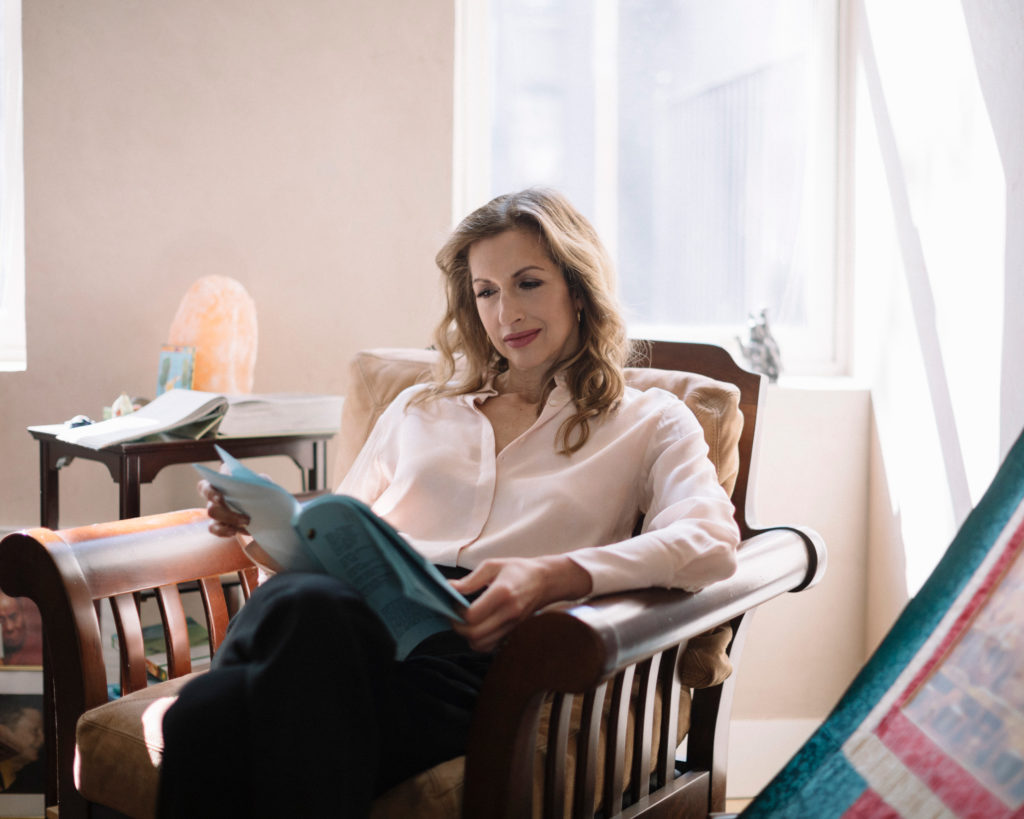
Alysia wears the Blake shirt, the Elliott trouser, and the Claressa earrings.
I HAVE TWO BIG HOPES for what people take away from Egg. One is that it inspires the courage and curiosity to explore their own truths, rather than society’s expectations. Whether it’s the question of motherhood or anything else, we need to decide for ourselves what feels right and brings us joy. My other hope is that the film will inspire women to listen to each other more—and support other people’s choices, even if they differ from your own.
I WISH PEOPLE WOULD STOP ASKING KIDS “WHAT DO YOU WANT TO BE WHEN YOU GROW UP?” I had no idea when I was little, and now that I have a 10-year-old daughter, I think it’s even more offensive. It turns me into a protective mama bear, like “Why are you putting that on her?” No one knows what they want to be when they’re 10! Can’t they just be kids?
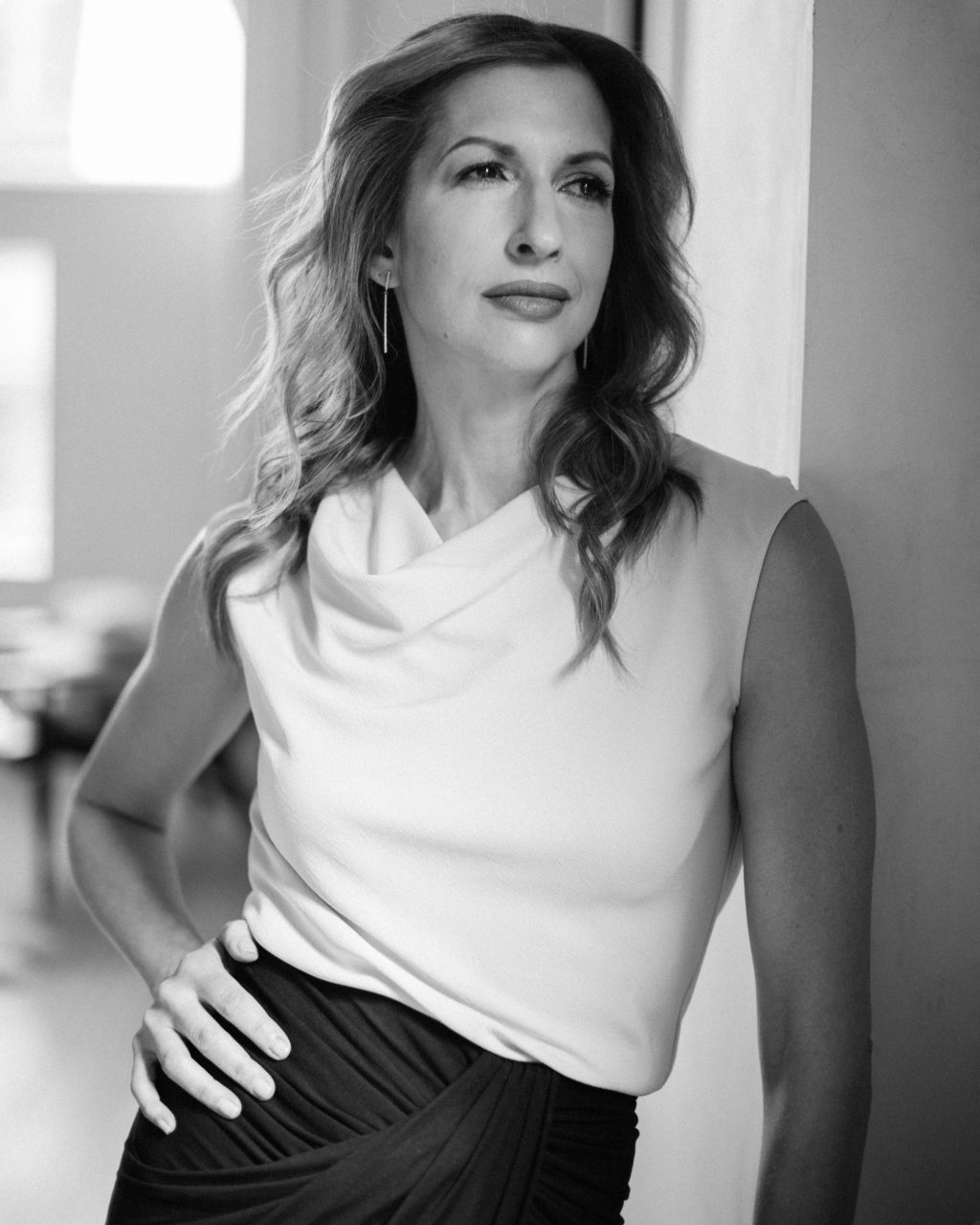
Alysia wears the Rowling top, the Minetta skirt, and the Williamina earrings.
WHEN I WAS 19, I FOUND OUT I HAD A TUMOR. I was studying abroad in a theater program at the time, and I spent about a week waiting to hear if I had cancer. In the end, I didn’t, but during that time, I started to examine my life. I was majoring in bio-psych, but I had always loved the arts. I landed on, “You know what? I’m going to try this acting thing, and if it doesn’t work, I can always do something else later.” But then I just never stopped.
I LOVE THE EXPRESSION, “LUCK IS OPPORTUNITY MEETS PREPAREDNESS.” That’s the story of my career. I was in a play back in the 2000s, and I befriended Jen Euston, who was the assistant to the casting director. We stayed in touch, and then years later, she became the casting director for “Orange is the New Black.” I originally auditioned for the role of Alex, which I didn’t get. But they saw something in me, and later they hired me to play Fig, which was a small part that evolved. So that character has been a seven-year journey, but it began years ago when I met Jen. Sometimes it takes a while for things to come full circle.
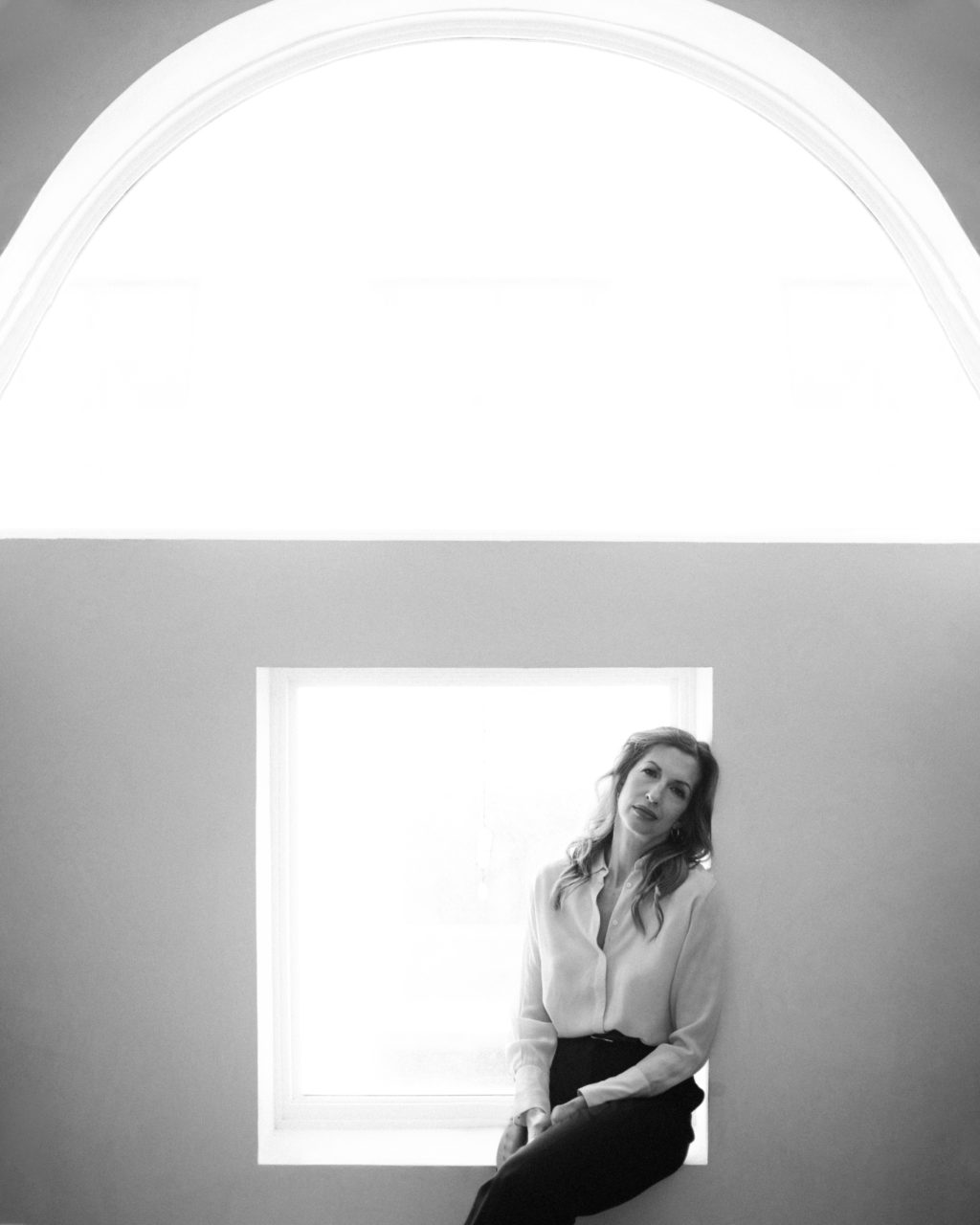
Alysia wears the Blake shirt, the Elliott trouser, and the Claressa earrings.
THERE HAVE BEEN SO MANY MOMENTS IN MY CAREER where I felt lost or questioned my decisions—and there still are. But I try to focus on the fact that I can always change my mind and reinvent myself. I used to think that maybe I should be a social worker. After playing Fig, that might not work because people might be a little afraid to sit down in an office with me as a social worker. I find it comforting, though, to know I don’t have to do any one thing. I have the freedom to choose every day.
I RECENTLY MARIE KONDO-ED MY CLOSET, so if it doesn’t bring me joy, it’s not in there anymore. As humans, we are always playing with costumes and dressing for the moment. For me, clothes are about mood and expressing myself. And then I do have a second closet that is actual costumes I need for work rather than things that Alysia would wear.
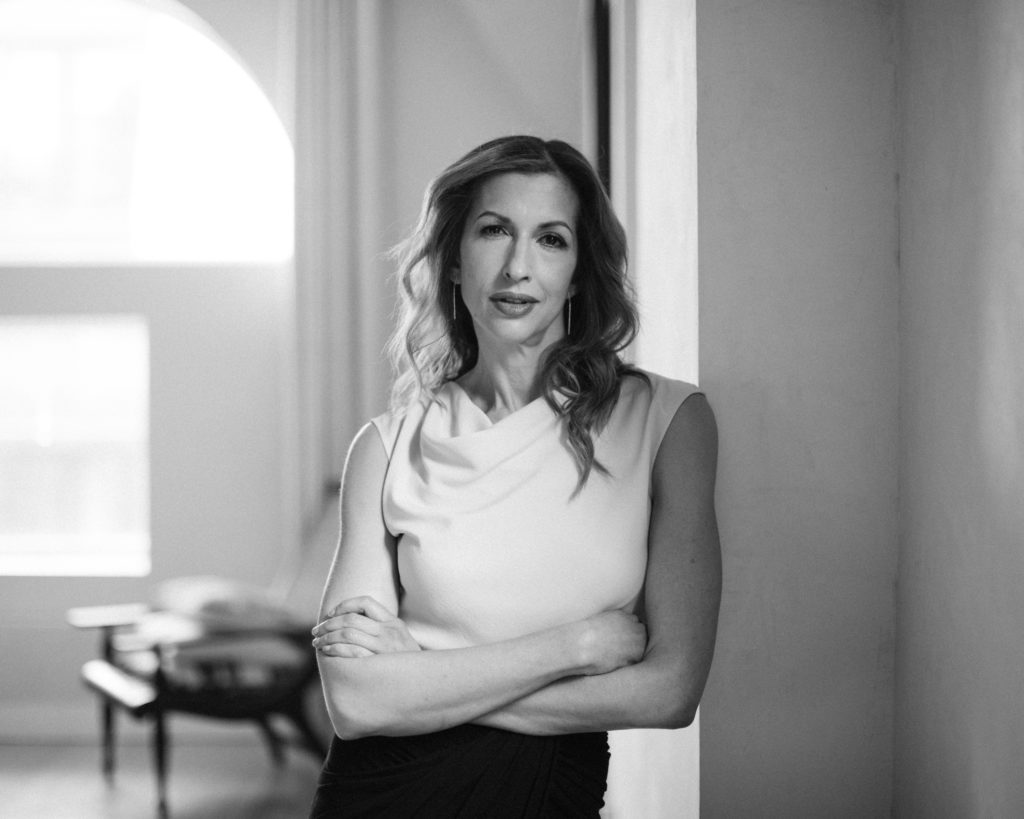
Alysia wears the Rowling top, the Minetta skirt, and the Williamina earrings.
MY GRANDMOTHER LOVED CLOTHES and taught me about them in a deep way. She was one-of-a-kind and owned a lot of one-of-a-kind clothing from all over the world—she would probably have hated fast fashion. The biggest thing I learned from her was, “Turn it over.” Which literally means turn the piece inside out and examine the construction. Is it hand-made or machine-made? Is it lined? What do the seams look like? To this day, when I see a piece of striped clothing and the stripes aren’t aligned at the seam, I actually get angry on behalf of my grandma. I’m like, “How can you ask me to spend a lot of money on this if you haven’t even lined up your seams!?”
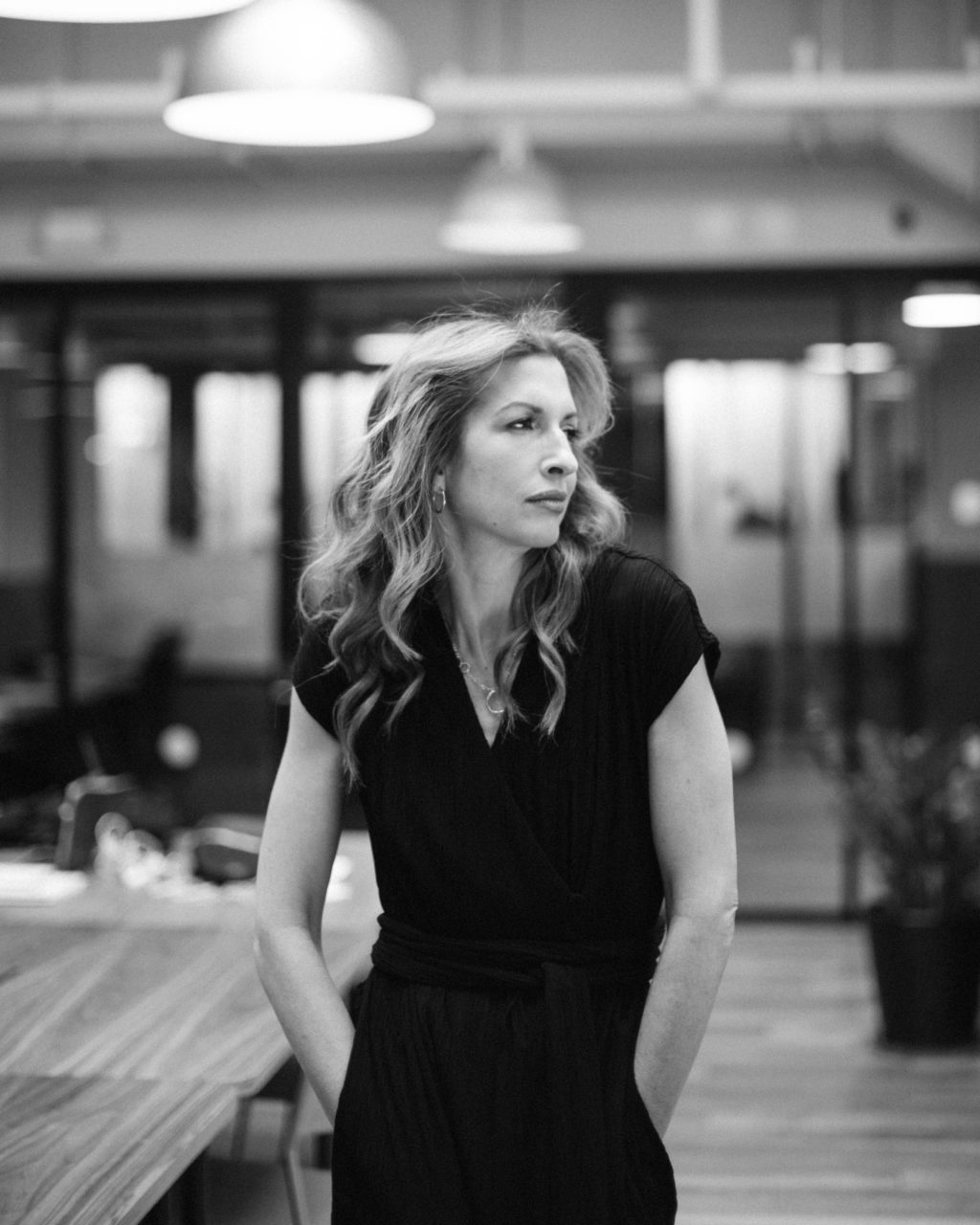
Alysia wears the Devlin dress, the Claressa earrings, and the Tenley necklace.
Want to hear more from Alysia? She’s the headline speaker at our live storytelling event in NYC on April 4. Click here to learn more.
Photographs by Rich Gilligan. Styling by Sam Michel.





